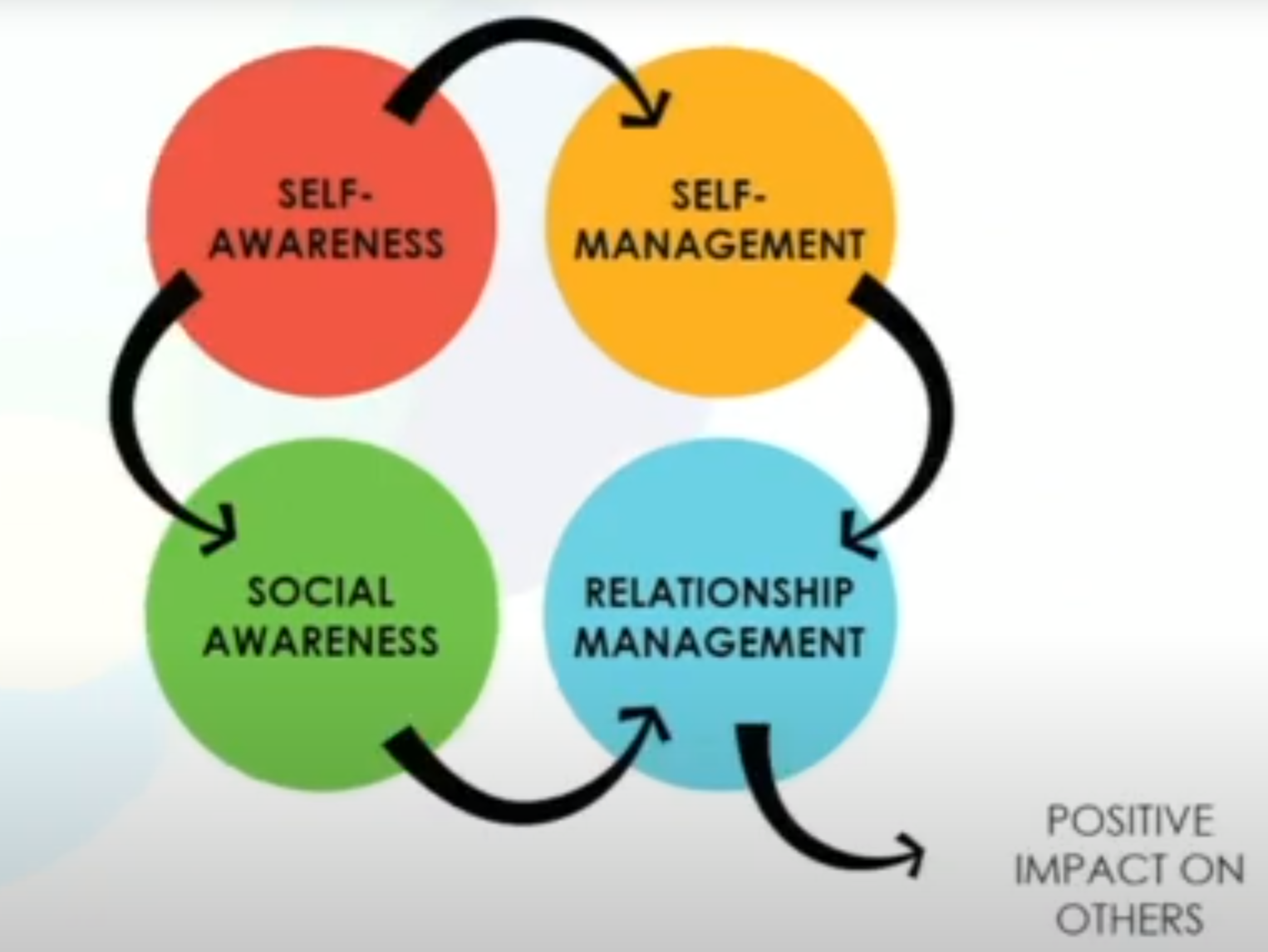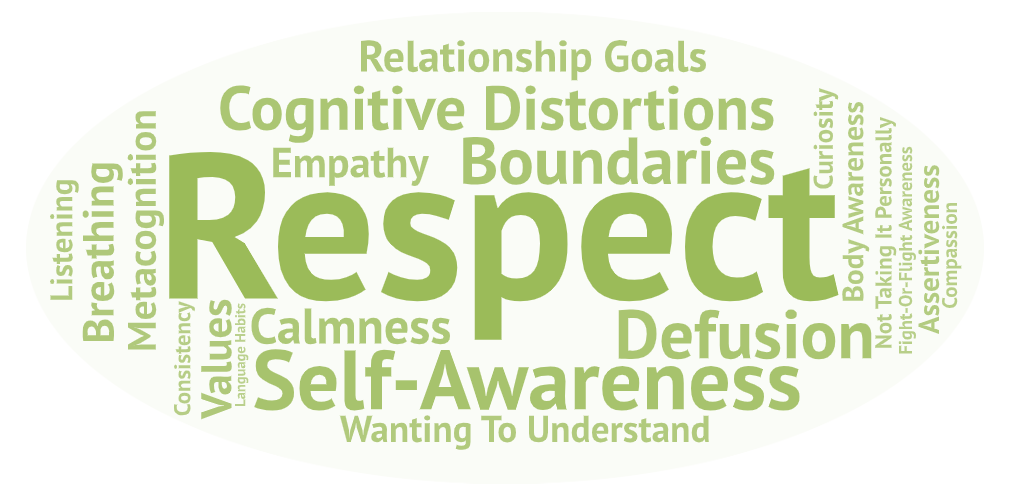Overview
Conflict is a fact of life. You have conflict inside yourself and will have it with everyone you spend time around at some point. Some conflicts are big. Most are small. Learning ways to recognize conflict and handle it better is something you and I have to do in order to have better relationships and to enjoy ourselves more.
To handle conflict better, you need to recognize a few things about anger in general, a few of the reasons it often plays out like it does and how to change that. You will also benefit from developing your emotional intelligence or EQ, so that you have a better point of view toward yourself and others before conflict comes into the picture.
The Faces of Anger
The anger we experience in ourselves or from others during conflict shows up in several common ways. You can think about these different ways as "faces." The way anger looks, behaves and expresses itself is different at different times and can be very different in intensity.
Passive-Aggression
Passive-aggression is perhaps the most difficult face of anger to deal with because the other person withholds or gets in the way of what you want but claims they aren't angry. They might withhold praise, attention, or affection. They might "forget" or fail to follow through on commitments. They might keep their distance or withhold intimacy. They often do things that they know will upset you. They might be chronically late if that bugs you.
Sarcasm
The line between joking with someone and being sarcastic isn't obvious. Someone might use "funny" or cutting remarks when things are tense. They might reveal embarrassing information about you or say things in public. They tend to use a tone of voice that shows disgust or disapproval.
Cold Anger
Cold anger involves a turning off, avoiding, or not responding to someone or giving them the silent treatment. Refusing to say what's wrong is a form of cold anger. Pretending everything is OK when it clearly isn't is another form.
Hostility
Hostility is a kind of free-floating anger that has no clear focus. It comes across as an attitude or "the atmosphere." It comes out when something fails to meet expectations. Stress levels can play a role on this. Someone may act rushed, hurried or impatient with visible signs of frustration and annoyance.
Aggression
Aggression involves actions like yelling, cursing, blaming, name calling, poking, pushing, slapping, hitting or blocking the other person. There is an intention to threaten and intimidate or hurt you emotionally or physically. Hostility is more "diffuse." It lacks the clear focus or directedness of aggression.
Learned Helplessness
Learned helplessness happens when someone frequently faces negative, painful or frightening circumstances while being or feeling powerless to do anything about it. This can be amplified by the circumstances occurring suddenly and "randomly." Repeatedly experiencing failure in some context can also result in learned helplessness.
Learned helplessness leads you to not act, to withdraw or to act in a futile or self-destructive way in any related situations. While experiencing it, people don't look for options or try to understand things in a new way. They cognitively shut down and simply try to cope or survive. Many of us learned to do this as kids, especially if we experienced serious neglect and abuse.
learned help·less·ness
/ˌlərnd ˈhelpləsnəs/ noun (PSYCHOLOGY)
Learned helplessness happens when a person frequently faces a negative, uncontrollable situation and stops trying to change their circumstances, even when they have the ability to do so, or engages in self-destructive or short-term coping behavior.
Strict, punishing, alcoholic or addicted parents are frightening and overwhelming. Kids of these parents are powerless to handle the situations they all too frequently find themselves in. This leads to learned helplessness. As adults, relationship problems can trigger learned helplessness related behavior when old feelings are felt once again.
Learned helplessness can result from and contribute to depression, anxiety, PTSD and often has a sense of stuckness or hopelessness about it. Choosing to try or start doing something about your situation is a big step when learned helplessness is present. It can take quite a bit of effort to keep moving forward consistently. Small rewarding steps are important.
Emotional Intelligence
Emotional Intelligence (EQ) is a term used to refer to how "smart" you are about emotionally significant things. When you're dealing with emotions you're almost always dealing with some combination of your feelings and someone else's at the same time. Daniel Goleman talks about this in a way that's summarized in the Figure 1 below.

Daniel Goleman's model focuses on four things:
- Self-Awareness – Your ability to recognize and understand your moods, attitudes, emotions, desires and drives. Your also understand how these tend to affect other people.
- Self-Management – Your ability to control or redirect "unhealthy" or problem impulses and moods. You can also suspend judgement in order to think things out before acting. You have reasonable self-control, so you can reliably choose one action in place of another. You can also self-regulate, so you can work to change one feeling into another. Self-regulation and self-control work together.
- Social Awareness – Your ability to understand other peoples' emotions. You can skillfully act towards others according to their feelings. You express empathy and compassion.
- Relationship Management – You reliably manage relationships. You have the ability to find common ground, build rapport and work to repair miscommunication and other relationship difficulties.
The word cloud in Figure 2 below summarizes concepts and skills that develop and support Emotional Intelligence.

The 5 R's of Handling Conflict
Recognize
Notice what's happening. Become aware of the sensations in your body. Are you tense, agitated, anxious or angry? Where do you feel it?
Resist
Stop yourself. Take a breath. Take a few more. Make them slower and fuller. Let your heart slow down. Say something to yourself to remind yourself to step back mentally. It might be "Stop!" or "Chill." It might be saying, "I need to breathe and focus." Pick something that works for you. The goal is to not let your thoughts, feelings or body get carried off by your rush of feelings. Scan your body and let any tense muscles relax.
If you need to take a timeout, say so. "This feels really intense. I need take some time to think." or "This feels really intense. I need take some time to calm down and collect myself." (Remember to set an approximate time to restart or check in. Half an hour to an hour is usually good.)
Realize
Notice your feelings. Listen to a few automatic thoughts. Pay attention to how they sound to you. Ask yourself three key questions about your thoughts:
- Are they based on real facts rather than emotional or colorful interpretations?
- Are they giving me good ideas for calming myself and resolving the problem I face?
- Are they free of cognitive distortions?
Reflect
Replace your automatic thoughts with reasonable, realistic ones that are grounded in actual facts about the person and situation. Make sure you use simple accurate language. Follow these guidelines:
- Focus on realistic expectations for this person or situation. Think about past behavior and what's actually happened in reasonably similar circumstances before.
- Think about the situation in light of other recent events or at other things the person has done or said that might be more positive. Make an effort to look for good stuff. Don't be satisfied with the easy automatic negative stuff. Find and consider the bigger picture.
- Review things you know about the other person or their situation that can help you understand their actions in a more positive or reasonable light.
- Review your own strengths. What can help you cope. How have you stayed calm in healthy ways in real emergencies in the past? If you remember any other healthy strategies, feel free to use them, too.
Resolve
A good plan is specific, and it will describe the actions you're going to take. It's under your control, so it's something you can actually do without depending on someone else for permission or cooperation. Its outcome can be measured, or you can tell when it's done.
Having a plan gives you a sense of control, and it will help reduce your anger. You can use positive healthy self-talk to make it easier to follow through. If you have time, you can work it out in more detail on paper for practice. It can even help to do this after you've been unsuccessful, so you can think about what might have worked better. This can help you get ready for next time.
Things to Keep in Mind
- Pay attention to the 5 R's, especially recognizing and resisting. Breathe.
- Remember, it may be happening to you, but it's not personal. It's about the other person's ability to handle their emotions in a healthy way.
- Validate the other person until they feel validated. This doesn't mean you like what they're doing or that it's OK. It means you're letting them know you recognize how they feel and to some extent know why.
- Be unfailingly respectful. Empathy, listening and calm consistency will get you where you want to go over time.
- People react and lash out or act out by habit. Tension often builds quietly. At some point, it's triggered. This is especially true for stress prone people.
- Find whatever element of truth there is in what they're saying, especially when they're saying it very badly. (You might have to help them sort it out.)
- When the other person has mostly calmed down, find options for resolving the situation. Respect differences and disagreements over details or the things that are the other person's responsibility.
- Beware of compromises and false agreement. To actually resolve something, both of you have to believe in and do something. If either of you are half-heartedly agreeing, things aren't going to be taken care of, and seeds for new conflict have been sown.
Questions for Journaling
- How do you or did you usually experience anger from your significant other?
- How do you talk to yourself about their being angry? Do you encourage yourself to be angry, too? Do you use colorful, extreme or emotionally loaded language while doing it?
- How does being around angry people for some time affect your eating and sleeping habits? What habits does it encourage? Are any of them positive?
- What would you like to try this week to practice being around anger better?
Videos
The Awesome Life, What is Learned Helplessness?
Dr. Christian Conte, How to Handle Crisis-Prone People
The Barton Blueprint for Emotional Intelligence, What is Emotional Intelligence?
Resources
W. Robert Nay
Overcoming Anger in Your Relationship: How to Break the Cycle of Arguments, Put-Downs, and Stony Silences (2010)
Verses for the Week
James 1:19
My dear brothers and sisters, take note of this: Everyone should be quick to listen, slow to speak and slow to become angry…
Proverbs 29:11
Fools give full vent to their rage, but the wise bring calm in the end.
Proverbs 15:1
A gentle answer turns away wrath, but a harsh word stirs up anger.
Proverbs 15:18
A hot-tempered person stirs up conflict, but someone who is patient calms a quarrel.
Proverbs 14:29
Whoever is patient has great understanding, but one who is quick-tempered is foolish.
Prayer for the Week
Help me this week to pay attention to how I think about and respond to conflict. Help me stop my negative trains of thought, ask myself better questions and have empathy for and curiosity about the other people involved. Help me see the hurt and pain in others and treat them like I'd want to be treated. Help me to remember my part, admit my mistakes and my limitations. Help me be a better me, so I can become a peacemaker instead of a peacebreaker. Amen.

